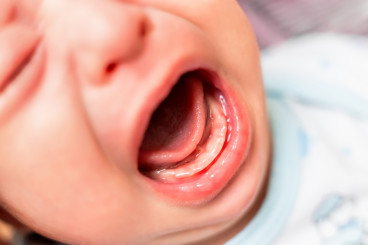Mouthguards: Essential Protection for Your Teeth and Jaw
Mouthguards are more than just sports equipment; they're essential tools for protecting your oral health. From preventing injuries during physical activities to managing teeth grinding and jaw pain, mouthguards offer a simple yet effective solution. Discover the types, benefits, and importance of mouthguards for various dental concerns.

In the realm of oral health, mouthguards play a crucial role in protecting teeth and maintaining overall dental well-being. These small, custom-fitted devices serve multiple purposes, from safeguarding athletes during sports to helping individuals manage bruxism and temporomandibular joint (TMJ) disorders. This comprehensive guide will explore the importance of mouthguards, their various applications, and how they contribute to better oral health.
The Importance of Mouthguards in Sports
Athletes across various sports disciplines have long recognized the value of mouthguards in protecting their teeth and oral structures during physical activities. Contact sports like martial arts (boxing, BJJ etc.), football, and hockey pose significant risks to dental health, making mouthguards an essential piece of protective equipment.
Mouthguards work by absorbing and distributing the force of impacts, reducing the risk of dental injuries such as knocked-out teeth, fractured roots, and cut lips. They also help prevent concussions by cushioning blows to the jaw. The American Dental Association recommends the use of mouthguards in 29 sports and exercise activities, highlighting their importance in maintaining oral health for athletes.
Types of Sports Mouthguards:
- Stock mouthguards: Pre-formed and ready to wear, these offer the least protection and comfort.
- Boil-and-bite mouthguards: These can be customized at home by softening in hot water and biting to form a better fit.
- Custom-fitted mouthguards: Made by dental professionals, these offer the best protection, comfort, and fit.
Investing in a high-quality, properly fitted mouthguard is crucial for athletes looking to protect their smiles and overall oral health during sports activities.
Mouthguards for Bruxism Management
Bruxism, commonly known as teeth grinding or clenching, affects millions of people worldwide. This condition can lead to various dental problems, including worn-down teeth, increased sensitivity, and even cracked or chipped teeth. Mouthguards play a vital role in managing bruxism, particularly for those who grind their teeth during sleep.
Night guards, a type of mouthguard specifically designed for bruxism, create a barrier between the upper and lower teeth. This barrier helps to:
- Reduce the wear and tear on teeth caused by grinding
- Alleviate jaw pain and muscle tension
- Protect dental work such as crowns and fillings
- Improve sleep quality by reducing grinding-related discomfort
Custom-fitted night guards, created by dental professionals, offer the best protection and comfort for individuals suffering from bruxism. These guards are made from durable materials that can withstand the forces of teeth grinding while providing a comfortable fit for nightly use.
Mouthguards for TMJ Disorders
Temporomandibular joint (TMJ) disorders can cause significant pain and discomfort in the jaw area, affecting everyday activities like eating and speaking. Mouthguards, often referred to as occlusal splints in this context, can play a crucial role in managing TMJ disorders.
These specialized mouthguards work by:
- Reducing pressure on the jaw joints
- Promoting proper alignment of the upper and lower jaw
- Preventing teeth clenching and grinding, which can exacerbate TMJ symptoms
- Providing a cushioning effect to alleviate pain and discomfort
For individuals suffering from TMJ disorders, a custom-fitted occlusal splint prescribed by a dental professional can provide significant relief and improve overall quality of life.
The Importance of Proper Fit and Care
Regardless of the intended use, the effectiveness of a mouthguard largely depends on its fit and maintenance. A properly fitted mouthguard should be comfortable, allow for easy breathing and speaking, and stay firmly in place during use.
To ensure the longevity and effectiveness of mouthguards:
- Clean the mouthguard regularly with cool water and mild soap
- Store it in a clean, ventilated container when not in use
- Avoid exposing the mouthguard to high temperatures, which can distort its shape
- Replace the mouthguard if it shows signs of wear or damage
- For children and adolescents, replace the mouthguard more frequently to accommodate growth and changes in dentition
- Regular dental check-ups are also essential to ensure the mouthguard continues to fit properly and provides adequate protection.
The Benefit Analysis of Mouthguards
While some may view mouthguards as an unnecessary expense, the cost of these protective devices is minimal compared to the potential expenses associated with dental injuries or long-term damage from conditions like bruxism. A single knocked-out tooth can result in thousands of dollars in dental work, not to mention the pain and inconvenience involved.
Investing in a high-quality mouthguard, particularly a custom-fitted one, can save significant money in the long run by preventing costly dental procedures and maintaining overall oral health. Moreover, the comfort and protection offered by a well-fitted mouthguard can provide peace of mind during sports activities or while managing conditions like bruxism and TMJ disorders.
Relevant ADA Codes for Mouthguards and Custom Mouthguard Fitting
D9944 - Occlusal guard – hard appliance, full arch
This code is used for custom-fabricated occlusal guards made from hard materials, covering the entire upper or lower arch.
D9945 - Occlusal guard – soft appliance, full arch
This code is for custom-fabricated occlusal guards made from soft materials, covering the entire upper or lower arch.
D9946 - Occlusal guard – hard appliance, partial arch
This code is used for custom-fabricated occlusal guards made from hard materials, covering only a portion of the upper or lower arch.
D9941 - Fabrication of athletic mouthguard
This code is specifically for the fabrication of custom athletic mouthguards.
D9943 - Occlusal guard adjustment
This code is used when adjustments are made to an existing occlusal guard.
Conclusion: Mouthguards offer Essential Protection for your Teeth
Mouthguards are invaluable tools in protecting oral health across various scenarios. Whether you're an athlete looking to safeguard your smile during sports, someone struggling with nighttime teeth grinding, or an individual managing TMJ discomfort, a properly fitted mouthguard can make a significant difference in your dental well-being.
By understanding the importance of mouthguards and choosing the right type for your specific needs, you can take a proactive step in maintaining your oral health and preventing potentially costly dental issues in the future.
Looking for affordable dental care options, including custom mouthguards? Visit Dr. BestPrice Dental Auction Site to find great deals on dental treatments and save on your oral health needs. Explore our dental discount options today!



